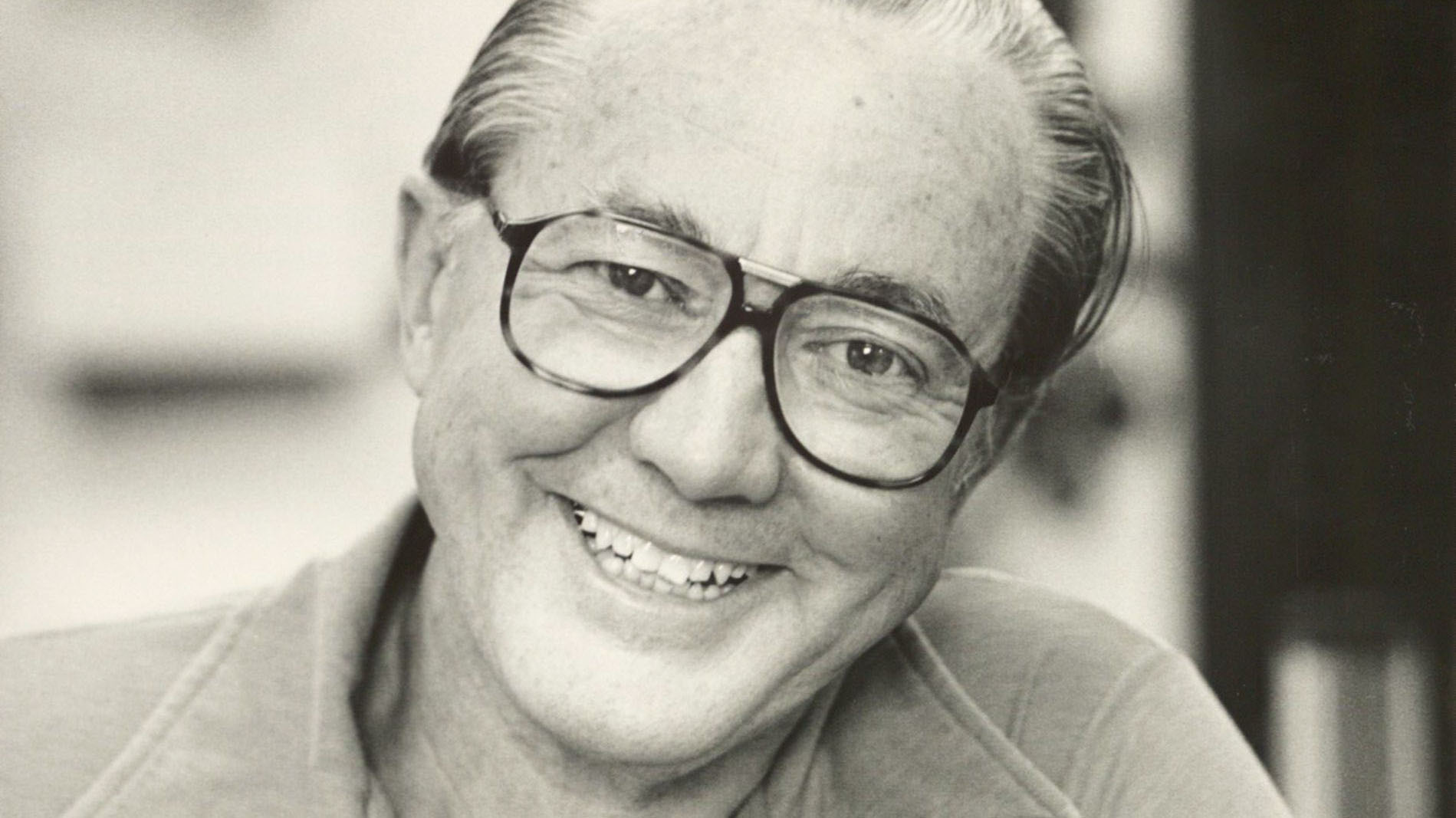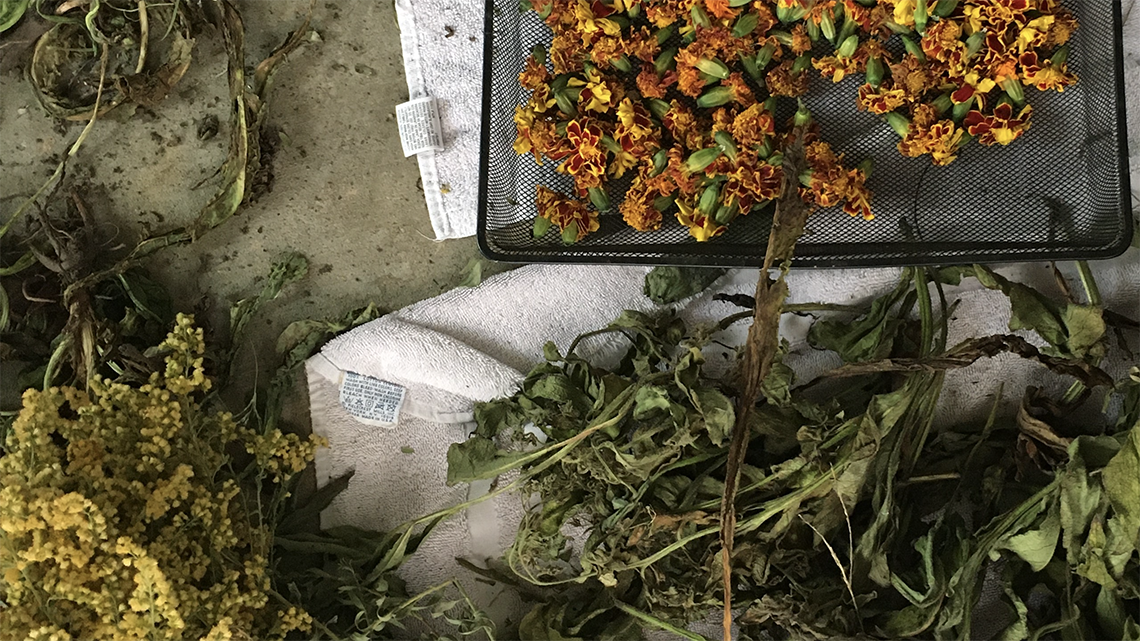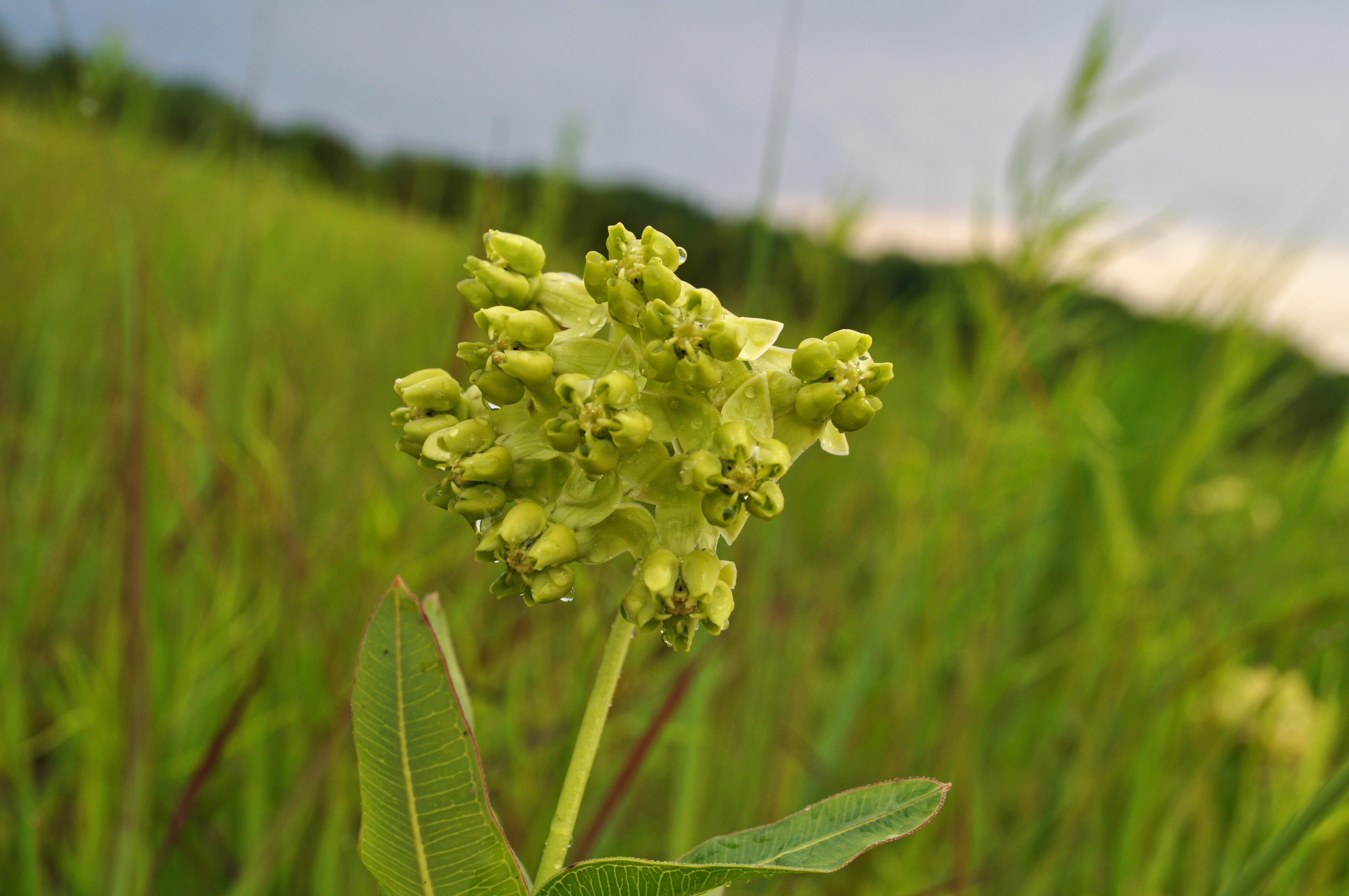Understanding Our Environment

February 2022 Issue
Understanding Our Environment is the internal newsletter for the Kansas Biological Survey & Center for Ecological Research community. Please email biosurvey@ku.edu regarding any errors or omissions.
Photo: A Lawrence High School class led by Ted Harris, assistant research professor, visited the KU Field Station’s Cross Reservoir in November.
Comings and Goings
Emma Hauser, former doctoral candidate in the Billings Lab, successfully defended her dissertation in December and is now a postdoctoral researcher working with Cory Cleveland, professor of terrestrial ecosystem ecology at the University of Montana, on a five-year, $500,000 National Science Foundation grant, “INCyTE: Investigating nutrient cycling in terrestrial ecosystems: Integrating observations, experiments and models.” Sharon Billings is a senior scientist and Dean’s Professor of Ecology and Evolutionary Biology (EEB).
We welcome Amanda Gehin and Eric Duell to the Bever/Schultz Lab, Christopher Frazier to Jim Thorp’s Aquatic Ecology Lab, and Vadim Karatayev to the Reuman Lab. (Eric has been added to our website; the other new faces will be soon.)
- Amanda is an accomplished artist (see her website) and will be working on her master’s-level research on the tri-trophic interactions among Silphium integrifolium that is being domesticated by researchers at The Land Institute, Silphium enemies and mycorrhizal fungi. Jim Bever is a senior scientist and Foundation Distinguished Professor of EEB. Peggy Schultz is an associate specialist and a faculty member in the Environmental Studies Program.
- Eric finished his Ph.D. work with Gail Wilson, Regents Professor of Natural Resource Ecology & Management at Oklahoma State University and will be working with the MAPS (Microbiomes of Aquatic, Plant and Soil Ecosystems across Kansas) project as a postdoctoral researcher. Eric presented at our Friday Ecology Seminar on Feb. 11.
- Christopher joined the Aquatic Ecology Lab in January as a research technician. He comes to KU from Texas A&M Corpus Christi, where he was a lab manager responsible for collecting and processing of stream macroinvertebrate community samples. He received his master’s degree from Western Michigan University, where he studied taxonomic and functional trait structure of macroinvertebrate communities in Great Lakes coastal wetlands. Jim Thorp is a senior scientist and professor of EEB.
- Vadim finished his Ph.D. work Marissa Baskett, professor of environmental science and policy at the University of California-Davis and will work as a postdoctoral researcher on spatiotemporal population dynamics, especially of giant kelp, on an NSF-supported project. Dan Reuman is a senior scientist and professor of EEB.
In Memoriam
Ken Armitage, KU professor emeritus, longtime director of the KU Field Station, and namesake with his wife, Katie, of the Field Station’s Armitage Education Center and the KU Armitage Lecture, had a long list of accomplishments and was a friend and mentor to many. He passed away Jan. 6, and memorial tributes continue to be compiled. The photo below is from the KU Archives (dated 1988). 
Grants
Jennifer Moody, senior research assistant, and Mary Anne Jordan, KU professor of visual arts, have been awarded an $8,300 grant from the Elizabeth Schultz Environmental Fund of the Douglas County Community Foundation to develop a community dye garden at the Native Medicinal Plant Garden (KU Field Station) in 2022. The funding will help provide plants, equipment, educational signage and labor for the garden. The main event will be an art exhibit and lecture by a visiting textile artist, held in conjunction with the KU Dept. of Visual Arts. The planning stages of this project have begun, and the garden is being prepared for spring planting.

Just before the early February snows, researchers Mike Houts and Jennifer Delisle made progress on their project with the Douglas County Heritage Conservation Council and the Lawrence Parks and Recreation Department to improve pollinator and grassland habitat at the Mutt Run off-leash dog park next to Clinton Reservoir. The project goal is to change the composition of the vegetation from about 90 percent brome and a mix of non-native and some invasive species to a more native grassland habitat with a variety of flowering plants to provide critical resources to a wide range of pollinators, including the monarch butterfly. After the 10 acres was burned and disced in November, team members waited for snow to apply approximately 125 pounds of native grass and wildflower seed. Most of the seed was planted using a tractor and seed drill, but the smallest seeds were scattered by hand. Snow protects seeds from birds and animals, provides cold treatment that increases germination rates, and helps work seeds into the soil. The next step will be to coordinate in spring with the City of Lawrence, Monarch Watch, Native Lands LLC, Jayhawk Audubon Society and others to host public educational events to include planting about 3,000 wildflower seedlings. These events will offer outreach opportunities for our staff and students; more information is forthcoming.
Publications
Reb Bryant, doctoral student in the Bever/Schultz Lab, has co-authored their first peer-reviewed publication, “Thermal stress triggers productive viral infection of a coral reef symbiont,” in The ISME Journal, posted in January. Reb summarizes: “In heat-stressed corals, some viruses in the coral host’s endosymbiotic algae switch from a persistent to a productive infection mode. Over time, this may lead to coral bleaching symptoms and affect overall reef health.”
Alex Hoffpauir, Dean Kettle and Helen Alexander have published the results of a long-term study with Mead’s milkweed (below), “Seeding as a restoration technique for a rare prairie plant: An 11-year field experiment with Asclepias meadii,” in Restoration Ecology. First author Alex is a postbaccalaureate scholar in the Bever/Schultz Lab. Dean is former research programs director for the KU Field Station. Helen is a professor emeritus of EEB. Co-author Steve Roels is a former EEB graduate student, and co-author Aaron Reed is a University of Missouri-Kansas City faculty member and former KU postdoc.
Liz Koziol, Bryan Foster and Jim Bever, along with former postdoc Guangzhau Wang, now at China Agricultural University, have published the paper “Microbial mediators of plant community response to long-term N and P fertilization: Evidence of a role of plant responsiveness to mycorrhizal fungi,” posted in January in Global Change Biology. The paper used Bryan’s long-term fertilization experiment to test whether the relationship between plants and mycorrhizal fungi is altered by chronic fertilization and whether the change in plant-mycorrhizal relationship leads to the declining quality of the prairie plant community. Liz is a postdoctoral researcher in the Bever/Schultz Lab. Bryan is a senior scientist and professor of EEB.
Camille Delavaux, Robert Ramos and Jim Bever, along with Sidney Sturmer of Universidade Regional de Blumenau in Brazil, have published the paper “Environmental identification of arbuscular mycorrhizal fungi using the LSU rDNA gene region: An expanded database and improved pipeline,” posted in January in Springer Nature. Camille, a former doctoral student in the Bever/Schultz Lab, is a postdoctoral researcher at ETH Zürich. Robert is a doctoral student in the Bever/Schultz Lab.
Jim Bever, along with Maarten Eppinga of the University of Zurich and Wim H. Van der Putten of the Netherlands Institute of Technology, has published the paper “Plant-soil feedback as a driver of spatial structure in ecosystems: A commentary on ‘Belowground feedbacks as drivers of spatial self-organization and community assembly’ by Inderjit, Ragan M. Calloway and Ehud Meron,” posted for the March 2022 issue on Elsevier Physics of Life Reviews.
Christopher Rogers passed a milestone with his 200th peer-reviewed publication, “An unavoidably short history of inland aquatic animal diversity research in the U.S. Virgin Islands,” with Edwin Cruz of the University of the Virgin Islands, in the Springer journal Aquatic Ecology. Christopher also has a chapter, “(Sub)tropical large branchiopod crustaceans,” in the book Fundamentals of tropical freshwater wetlands: From ecology to conservation management, recently published by Elsevier.
Debbie Baker and Don Huggins co-authored a literature review for The Nature Conservancy of Kansas and the U.S. Army Corps of Engineers Kansas City District regarding aquatic wildlife communities on the Kansas River, focusing on fish. This included reviewing the link between changes in flows and habitat and populations of fish, mussels, reptiles and amphibians, and birds. They also participated in workshops in which regional experts guided their analyses of historical fish data. The review include Kansas Biological Survey studies dating back to those done by Frank Cross (namesake of the KU Field Station’s Cross Reservoir) in the 1960s. For this effort, Debbie also co-authored a paper reviewing changes in mussel populations and habitat on the river. This work was done for the Sustainable Rivers Program, a partnership between The Nature Conservancy and the Corps of Engineers, to optimize reservoir releases to improve river habitat.
Awards and Honors
KU announced in January that Sharon Billings was one of three KU faculty members who had been named as fellows of the American Association for the Advancement of Science (AAAS) in 2022. The year’s class included 564 fellows from 24 scientific disciplines.
KU named Christopher Rogers the recipient of this year’s Steven F. Warren Research Achievement Award, one of three annual awards that recognize outstanding unclassified academic staff, unclassified professional staff and postdoctoral fellows whose research has significantly influenced their fields and expanded intellectual or societal insights. Christopher is an associate research professor.
Publicity
Chip Taylor of Monarch Watch was interviewed for two new articles, both published in late January, about monarch butterfly populations: “Western monarch butterfly populations rebounds after nearly vanishing last year,” published in late January in the Canadian newspaper The Globe and Mail (note that this paper has a paywall) and “The monarch butterfly population might be declining. Here’s what you can do,” in The Daily Northwestern of Evanston, Ill.
In addition, the diet developed and used by the Monarch Watch program for monarch butterflies was used in research by University of Minnesota scientists that led to the article, “Anthropogenic zinc exposure increases mortality and antioxidant gene expression in monarch butterflies with low access to dietary macronutrients,” just published in the journal Environmental Toxicology and Chemistry. The diet also has been used for at least six years by scientist Christine Merlin and her colleagues at Texas A&M University, who have used the latest gene editing technologies to reveal the genetic basis for how monarchs respond to changing seasonal conditions.
An article, “Water quality of Lake Miola to be monitored,” just published in the Miami County Republic newspaper, refers to the project planned for monitoring of this City of Paola water body by Ted Harris, assistant research professor, and his team throughout 2022 to better understand seasonal changes in water quality.
New KARS Website
The Kansas Applied Remote Sensing (KARS) program recently launched its new website, which lives entirely on the cloud. It was built in the ESRI Hub platform, which allows for smooth integration with GIS data and maps as well as convenient hosting of both geospatial and non-geospatial files. Project-related or public web mapping applications (such as the western Kansas wetland viewer), dashboards and story maps can be integrated into the new site. Please reach out to KARS staff if you’d like to learn more about how to make use of this new resource for public outreach and dissemination of information, especially that which has been placed in or would benefit from being placed in a geospatial context.
Events
KU graduate students in the labs of the Kansas Biological Survey & Center for Ecological Research will host the 2022 Midwest Ecology and Evolution Conference (MEEC) virtually at the University of Kansas, March 5-6. The annual regional conference, hosted by different institutions each year, is organized and directed entirely by graduate students and attended primarily by students. Organizers of the 2022 conference include Reb Bryant, Ashley Wojciechowski, Haley Burrill, Katie Eckhoff, Nathaniel Weickert, Naomi Betson, Kayla Clouse, Nat Coombs and Karen Gaines. Abstracts are due Friday, Feb. 18.
Jennifer Delisle and others are in the beginning stages of planning a public tour of the Breidenthal Biological Reserve of the KU Field Station’s Baldwin Woods Forest Preserve, to take place in late April. Get in touch with Jennifer is you’d like to help.
We held our first public Friday Ecology Seminar for the spring 2022 semester on Friday, Feb. 11. With regular host and organizer Ben Sikes, associate scientist and associate professor of EEB, on sabbatical, we have split up the work. Sara Baer, director of our research center, and Dan Reuman will take turns hosting. Kirsten Bosnak, communications coordinator, will send announcements (email moonfarm@ku.edu if you have questions). Several more dates (March 4, April 15, May 6) are set aside for students-only discussions. All seminars are recorded, and those that are not students-only discussions are posted to YouTube (below, Billings Lab doctoral student Ligia Souza’s talk from Dec. 1, 2021).
Several of our researchers and students attended the 2022 Kansas Natural Resources Conference in Manhattan on Feb. 3 and 4. Debbie Baker (photo below), aquatic ecologist, took responsibility for our booth, and several others gave presentations: Jude Kastens, associate research professor (KARS); Chen Liang, doctoral student in geography and atmospheric science who works with several our researchers; and doctoral students Ashley Wojciechowski and Katie Eckoff of the Baer Ecology Lab.
Outreach
Back on Sept. 25, grad students in our labs represented our research center at a booth at the KU Natural History Museum’s Baker Wetlands Family Fun Day. Karen Gaines of the Aquatic Ecology Lab shares the photos below of her activity there and those of Reb Bryant and Ashley Wojciechowski. Karen collected living dragonflies and damselflies and held them in net cages so visitors could observe them without harming them, and she shared information about dragonfly ecology. AshleY created a game in which visitors matched seeds with the same plant in flower, and Ashley and Reb shared about prairie plant ecology and microbial ecology.